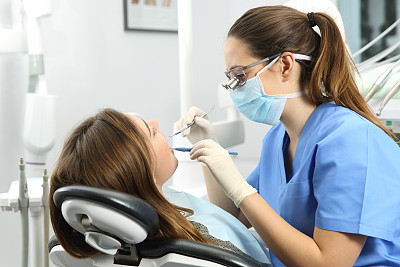Summary: This article delves into the significance of employing proper techniques in tooth extraction for optimal oral health. It emphasizes the necessity of appropriate preparation, skill, and post-extraction care to avoid complications and promote recovery. The various impact factors that influence the extraction process are discussed, highlighting the importance of an ethical approach, safe practices, and post-operative care strategies. The goal is to ensure that patients not only have a successful extraction but also maintain their overall oral health during and after the process.
1. The Need for Proper Preparation

Proper preparation is a critical factor when it comes to tooth extraction. It begins with a thorough examination of the patient’s dental and medical history. Dentists must assess underlying conditions that may affect the extraction, such as heart problems or bleeding disorders. This allows for the development of a tailored extraction plan, ensuring safety and effectiveness.
Furthermore, imaging technologies such as X-rays play an essential role. They help the dentist understand the relationship of the tooth with surrounding structures, including nerves and bone density. Knowledge gained from these images informs the approach and minimizes potential risks during the procedure.
Lastly, pre-operative instructions are vital. Dentists must communicate clearly with patients regarding what to expect before, during, and after the extraction. Patients should be informed if they need to abstain from certain medications or adhere to specific dietary guidelines. Proper preparation ultimately sets the stage for a smoother extraction process.
2. Importance of Skilled Techniques
The skill level of the dentist performing the extraction cannot be overstated. Utilizing proper techniques significantly reduces complications and helps facilitate a successful outcome. Dentists need training and experience to use the right instruments and methods appropriate for the specific tooth type and position.
Additionally, an understanding of the tooths anatomy is crucial. Knowledge of the root structure guides dentists in choosing the best extraction method to minimize trauma to surrounding tissues. A delicate balance exists between efficiency and caution, emphasizing the need for precise movements during the extraction procedure.
Moreover, the significance of maintaining patient comfort and supervision during the procedure cannot be ignored. Experienced dentists not only focus on extracting the tooth but also continuously gauge patient responses to manage anxiety and discomfort levels effectively. Their skillful techniques are vital in achieving a stress-free extraction experience.
3. Post-Extraction Care and Management
The role of post-extraction care is essential in ensuring optimal recovery and long-term oral health. After the tooth is successfully extracted, strict adherence to post-operative instructions provided by the dentist is crucial. These may include guidelines on managing pain, swelling, and dietary restrictions following the extraction.
Effective pain management can greatly enhance a patients experience after the procedure. Dentists may prescribe medications or recommend over-the-counter options to alleviate discomfort. Additionally, Ice packs can be suggested as a means to help reduce swelling and expedite healing.
Furthermore, routine follow-up appointments are often pivotal in monitoring the healing process. Dentists can identify potential complications early, such as infection or dry socket, ensuring that corrective action can be taken promptly. This preventive approach helps maintain optimal oral health post-extraction.
4. Ethical Considerations in Tooth Extraction
Ethical considerations should permeate the tooth extraction process to protect patient interests. Informed consent is paramount, ensuring patients fully understand the risks and benefits associated with the procedure. Dentists must encourage questions and foster an environment of open communication to empower inpatients in their treatment decisions.
Furthermore, the dentists responsibility extends beyond the technical execution of the extraction. They must also advocate for the patients overall oral health by recommending additional treatments if necessary, such as implants or bridges to fill gaps created by the extraction.
Finally, respecting a patient’s autonomy and preferences during the extraction process promotes trust, which is fundamental to establishing a long-term patient-dentist relationship. Ethical practices serve as a foundation for the delivery of dental care that prioritizes patient well-being.
Summary:
In conclusion, the significance of using proper techniques in tooth extraction cannot be underestimated. From thorough preparation and skilled methods to effective post-operative care and ethical considerations, each element plays a crucial role in ensuring not only a successful procedure but also in maintaining the overall oral health of the patient. The process demands respect for patient needs and preferences while focusing on safety and efficacy, ultimately leading to a healthier smile.
This article is compiled by Vickong Dental and the content is for reference only.
Vickong Dental
Vickong Dental is a large medical group established in Hong Kong in 2008 by professors from well-known medical universities in Guangdong and Hong Kong, as well as medical doctors from key national '985' universities (including Master's supervisors and senior professors). The chain of branches brings together expert dentists with PhDs and Master's degrees from Hong Kong and Mainland China, committed to providing high-quality dental treatment.
"Vickong Dental Practices the University Motto of 'Healing and Serving Society,' with a Stable Operation for Sixteen Years. It Has Been honored with Hong Kong Enterprise Leaders's Choice,' and is a Global Trusted Implant Center for the Nobel Implant System. Recommended by Hong Kong Metro Broadcast and Guangdong Television, it Serves Customers from Over Thirty Countries and Regions, Gaining the Trust and Favor of Citizens from the Guangdong-Hong Kong-Macau Greater Bay Area and Surrounding Cities.

Thousands of customers' unanimous praise
The most recognized and highly recommended dental service by customers in the Guangdong-Hong Kong-Macau Greater Bay Area
We Ensure You Receive Detailed Care and Attention Here
Hong Kong standards, Shenzhen prices, Your Trusted English-speaking dentists

Vickong Dental Medical-Grade Instrument Disinfection Process
Vickong Dental Medical-Grade Instrument Disinfection Process

Vickong Dental Chain: A Warm and Comfortable Environment for Treatment






Appointment Hours

Q&A
Why choose Vickong Dental?
Vickong Dental practices the university motto 「Medicine to Benefit Society」, with each branch bringing together highly qualified dentists with doctoral and master’s degrees from Hong Kong and the Mainland, and has maintained seventeen years of steady operation。Recipient of 「2024 Hong Kong Enterprise Leaders Brand」, 「2025 Hong Kong Enterprise Leaders Brand」, a Nobel Biocare Global Trusted Implant Center, and a brand recommended by Metro Radio Hong Kong and Guangdong TV。
To date, we have served customers from more than thirty countries and regions,earning exceptionally high word-of-mouth recognition and trusted recommendations from residents across the Guangdong-Hong Kong-Macao Greater Bay Area and surrounding cities
We have eight major branches in Zhuhai、Shenzhen,and a consultation and service assurance center in Hong Kong,so you can book a free consultation at any time for any questions,which is very reassuring.
If I do not accept the quotation after the CT scan, will I be charged??
No! As long as the actual treatment has not started, you will not be charged any fees.
Will there be any additional charges during the treatment process?
No, there won’t be any additional charges. Before treatment begins, we will clearly explain the treatment plan and its corresponding fees. Only after the patient agrees and signs the consent form will we proceed with the dental service.
Can I pay in Hong Kong dollars?
Yes. Vickong Dental accepts payment in Hong Kong dollars. The amount will be converted based on the exchange rate of the day, and the applicable rate will be clearly communicated to you in advance.
Can I reschedule my appointment at any time?
Yes. Please contact us via **WeChat** or **WhatsApp** as early as possible, providing your original appointment time and details, along with your preferred new date and time slot for rescheduling.













